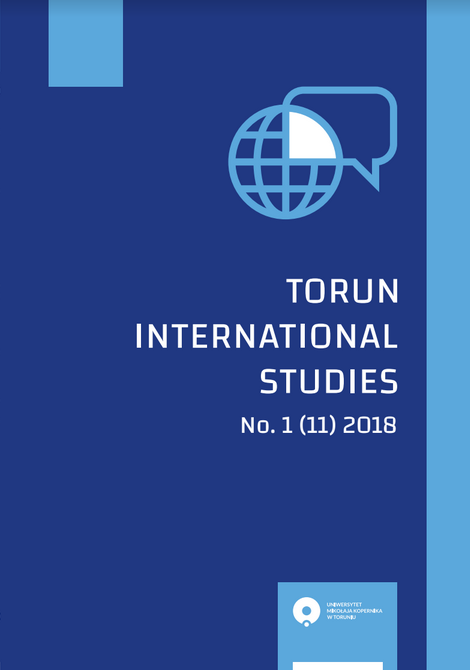THE ADEQUACY OF CONSTITUTIONAL COMPLAIN AS AN EXTRAORDINARY MEAN OF HUMAN RIGHTS PROTECTION – COMPARISON OF THE SOLUTIONS OF POLAND AND GERMANY
DOI:
https://doi.org/10.12775/TIS.2018.001Keywords
constitutional complaint, human rights, constitutionality, constitutional court, Poland, Germany, right of access to a courtAbstract
The primary purpose of the presented paper is to conduct comparative analysis of the institution of constitutional complaint within the legal systems of Poland and Germany. Within such analysis the author aims at establishment of an adequate relationship between two main goals of the constitutional complaint, such as: 1. the elimination of unconstitutional provisions and 2. the ensurance of human rights protection within two aforesaid legal systems. The secondary purpose of the article is to make attempt of the resolution of the issue which of the presented purposes shall gain a primacy while constituting an adequate model of the constitutional complaint. For the genuinity of the conducted analysis, the author will take into consideration such determinants as: the adapted model of the constitutional complaint (narrow limited only to legal provisions or wide), conditions of the admissibility of the constitutional complaint as well as competences of the Constitutional Court while hearing a certain constitutional complaint case. Such factors will subsequently be juxtaposed with the objective dataset, such as: yearly number of complaints submitted, yearly number of complaints accepted to the meritorical recognition, percentage of the complaints among all cases heard by the Constitutional Court and the average period of recognition of such complaint. The author will also refer to the level of satisfaction with the constitutional complaints efficiency in particular societies. Moreover the paper will rely upon the dogmatic analysis of the appropriate regulations regarding constitutional complaints in two abovementioned legal systems. The justification of the choice of presented subject comes down to necessity of the revision of the current Polish solutions regarding the constitutional complaint in order to ensure the icreasement of the efficiency of the human rights protection. Subsidiarily, the paper will also refer to the judicial practice of the European Court of Human Rights.References
Banaszak, B. (1997). Skarga konstytucyjna i jej znaczenie w zakresie ochrony praw podstawowych. In L. Wiśniewski (Eds.), Podstawowe prawa jednostki i ich sądowa ochrona (pp. 180–181). Warszawa: Wydawnictwo Sejmowe.
Bojańczyk, A. (1999). Skarga indywidualna do Europejskiego Trybunału Praw Człowieka:
przed czy po wyczerpaniu drogi krajowej skargi konstytucyjnej? Palestra, 7–8, p. 76.
Chmaj, M. (2008). Wolności i prawa człowieka w Konstytucji Rzeczypospolitej Polskiej. Warszawa: LEX: Wolters Kluwer Biznes.
Cossío Díaz, J.R. (2011). Sistemas y modelos de control constitucional en México. Estudios Jurídicos, 186, 215–229.
Czeszejko-Sochacki, Z. (1998). Skarga konstytucyjna w prawie polskim. Przegląd Sejmowy, 1.
Häberle, P. (1997). Die Verfassungsbeschwerde im System der Bundesdeutschen Verfassungsgerichtsbarkeit. Jahrbuch fur Offentliches Recht, 45, p. 89–135.
Hoffmann-Riem, W. (2003). Verwaltungsverfahren und Verwaltungsverfahrensgesetz. Baden-Baden: Beck.
Jamróz, L. (2011). Białystok Law Books 11: The Constitutional Tribunal in Poland in The Context of Constitutional Judiciary. Białystok: Temida2.
Kommers, D.P. (1997). The Constitutional Jurisprudence of the Federal Republic of Germany. Durham and London: Duke University Press.
Kommers, D.P. & Miller, R.A. (1994). The Constitutional Jurisprudence of the Federal Republic of Germany. Durham and London: Duke University Press.
Krok, W. (2015). Polski Trybunał Konstytucyjny na tle porównawczym. Warszawa: Promotor.
Królikowski, J. & Sułkowski, J. (2009). Znaczenie przesłanki oczywistej bezzasadności dla dostępności skargi konstytucyjnej jako środka ochrony konstytucyjnych praw i wolności. Przegląd Sejmowy, 5.
Łabno, A. (2009). Księga pamiątkowa profesora Marcina Kudeja. Katowice: Oficyna Wydawnicza Wacław Walasek.
Łabno, A. (2012). Skarga konstytucyjna jako środek ochrony praw człowieka. Przyczynek do dyskusji. Przegląd Prawa Konstytucyjnego 2012 (4), p. 39–59.
Łazarska, A. (2012). Rzetelny proces cywilny. Wolności i prawa człowieka w Konstytucji Rzeczypospolitej Polskiej. Warszawa: LEX: Wolters Kluwer Biznes.
Madecigo, A. (2015). Rule of Law and Fundamental Rights: Critical Comparative Analysis of Constitutional Review in the United States, Germany and Mexico. Berlin: Springer.
Rogowski, R. & Gawron, T. (2016). Constitutional Courts in Comparison: The US Supreme Court and the German Federal Constitutional Court. New York and Oxford: Berghahn.
Schlaich, K. (1997). Das Bundesverfassungsgericht. Munchen: Beck.
Steinberger, H. (1993). Models of Constitutional Jurisdiction. Strasbourg: Council of Europe Publishing.
Tatham, A.F. (2013). Central European Constitutional Courts in the Face of EU Membership: The Influence of German Model on Hungary and Poland. Leiden and Boston: Martinus Nijhoff Publishers.
Tuleja, P. & Grzybowski M. (2005). Skarga konstytucyjna jako środek ochrony praw jednostki w polskim systemie prawa. In J. Skrzydło (Eds). Sądy i trybunały w Konstytucji i w praktyce, Warszawa: LEX: Wolters Kluwer Biznes.
Vanberg, G. (2004). The Politics of Constitutional Review in Germany. Cambridge: Cambridge University Press.
Downloads
Published
How to Cite
Issue
Section
Stats
Number of views and downloads: 344
Number of citations: 0



